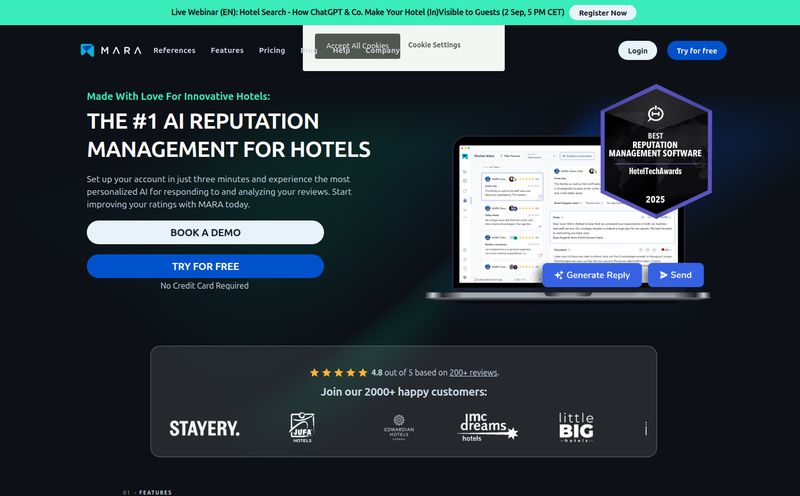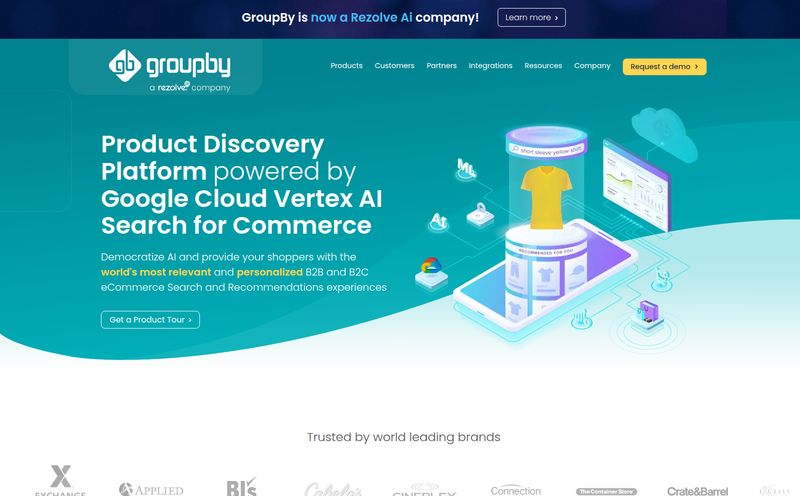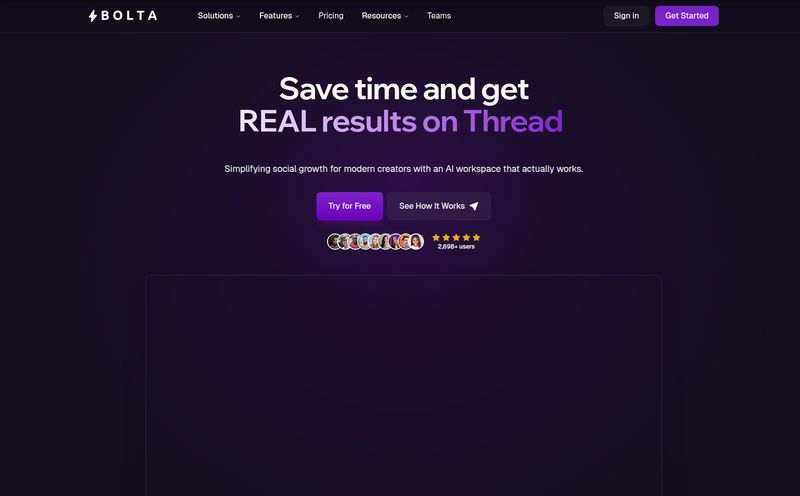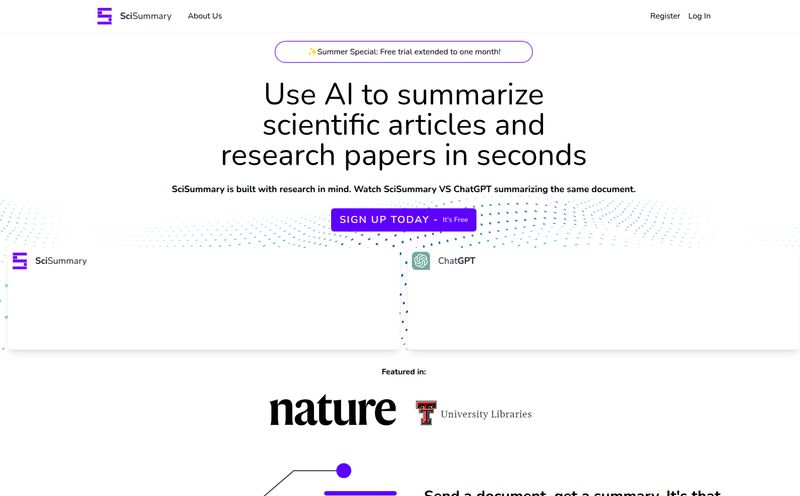Another Tuesday, another podcast episode in the can. The recording is crisp, the conversation flowed, and you’ve edited out all the awkward pauses. You hit publish. And then… crickets. Well, not exactly crickets, but that familiar, nagging feeling: “Now I have to promote this thing.”
The grind is real. You spend hours, maybe even days, creating this amazing piece of long-form audio. But the internet has the attention span of a goldfish on an espresso bender. You need clips. You need quotes. You need blog posts, tweets, and show notes. For years, this meant either chaining yourself to your desk for another five hours of painstaking transcription and content mining, or shelling out big bucks for a virtual assistant. It's a content creation hamster wheel, and honestly, I was getting tired of running on it.
Then I stumbled across a tool called PodMonke. The promise? AI-powered summaries for long-form content. My initial reaction was a healthy dose of SEO-blogger skepticism. I’ve seen a million “AI-powered” tools that are about as intelligent as a bag of hammers. But the idea of turning hours of audio into shareable gold in minutes… it was too tempting not to try.
So, What Exactly is PodMonke?
Let's cut through the marketing jargon. PodMonke is essentially an AI assistant that listens to your podcast for you. You feed it an audio file, and instead of just spitting back a giant, intimidating wall of text like a basic transcription service, it actually thinks about the content. It's designed to understand the flow of your conversation, identify who's talking, and pull out the most important bits.
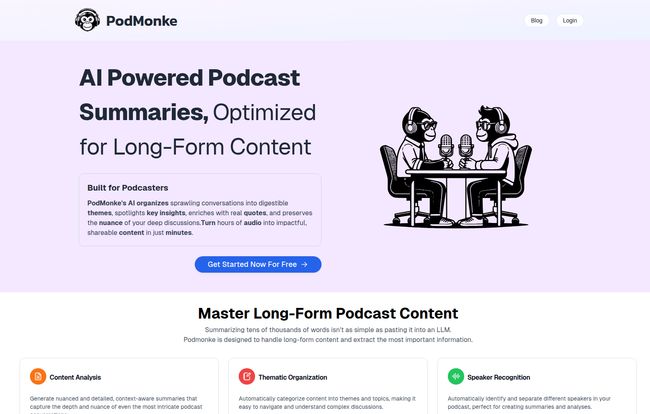
Visit PodMonke
Think of it like this: you've just conducted a brilliant one-hour interview. PodMonke is the intern who listened intently, took flawless notes, highlighted the killer quotes, and then organized those notes into clear, thematic sections ready for your review. Except this intern works at the speed of light and doesn't need coffee breaks.
The Features That Actually Move the Needle
Any tool can throw a list of features on a landing page. What I care about is what actually saves me time and makes my content better. After playing around with a few episodes, a couple of features really stood out.
Beyond Simple Transcription to Thematic Gold
This is the secret sauce for me. Getting a transcript is one thing. But PodMonke’s “Thematic Organization” is something else entirely. It breaks your rambling, hour-long chat into digestible sub-topics. For a recent episode I ran through it, a conversation about Google's latest algorithm update was automatically broken down into sections like 'Impact on Small Business', 'The Role of E-E-A-T', and 'Future-Proofing Your SEO'. This is an absolute game-changer for creating blog post outlines or detailed show notes without having to re-listen to the entire episode yourself.
The Magic of Quote Extraction and Speaker ID
How many times have you thought, “Oh, my guest said something brilliant around the 37-minute mark…” and then spent the next 15 minutes scrubbing back and forth to find it? It's maddening. PodMonke identifies the different speakers and pulls out what its AI deems to be relevant quotes. It’s like having a pre-made list of potential social media posts. The AI isn't perfect, but it gets you 90% of the way there, and that last 10% is a quick scan instead of a deep search.
From Podcast to Twitter Thread in Minutes
This follows naturally from the last point. The tool explicitly generates tweets and keywords from your summary. This is the kind of practical, time-saving feature that content creators dream about. It takes the big, scary task of “promoting the podcast” and breaks it down into actionable, copy-and-paste-able chunks. It’s not just a summary; it’s a content repurposing engine.
Let's Talk Brass Tacks: PodMonke Pricing
Alright, so what’s the damage? This is often where these cool AI tools fall apart for solo creators or small operations. I was pleasantly surprised to see a tiered approach that seems pretty reasonable.
| Plan | Price | Audio Hours | Best For |
|---|---|---|---|
| Light | $8.99 / month | 3 hours | Casual users or those with a bi-weekly show. |
| Basic | $14.99 / month | 5 hours | The sweet spot for most individual weekly podcasters. |
| Pro | $29.99 / month | 20 hours | Power users, content agencies, or networks. |
In my opinion, the value here is pretty clear. The $14.99 Basic plan covers a weekly one-hour podcast with room to spare. If you've ever paid a VA to do this kind of work, you know that $15 barely covers a single hour of their time. So, the ROI is definitely there.
The Not-So-Perfect Bits (Because Nothing Is)
No tool is a magic wand. As much as I like what PodMonke offers, it's important to be realistic. This is an assistant, not a replacement for a human brain. There are a couple of things to keep in mind.
The 'Garbage In, Garbage Out' Rule
This is a fundamental law of the universe, and it applies to AI, too. The accuracy of the transcription and summary is heavily dependent on your audio quality. If you have clear, crisp audio with minimal crosstalk, you'll get a fantastic result. If your recording sounds like it was made in a wind tunnel with two people talking over each other... well, don't expect miracles. The AI is smart, but it's not a wizard.
Can an AI Really Grasp Nuance?
Some purists will argue that only a human can truly capture the essence of a conversation, and they're not entirely wrong. AI can sometimes miss sarcasm, inside jokes, or the subtle emotional context that makes a conversation special. I view PodMonke's output as an incredible 90% draft. You still need to give it that final 10% human pass to catch any weirdness and inject your own voice. It's a massive time-saver, not a one-click-and-done solution.
My Final Verdict on PodMonke
So, is PodMonke worth your time and money? For the right person, absolutely. If you're a podcaster or content creator who feels constantly bogged down by the post-production promotion cycle, this tool could be a huge relief.
It’s not about being lazy; it's about being efficient. It automates the most tedious parts of content repurposing, freeing you up to focus on the creative stuff—like, you know, planning your next great episode.
Content repurposing used to feel like trying to build a new Lego set from the scattered pieces of an old one, with half the instructions missing. PodMonke is like getting the original instruction manual and that little orange brick-separator tool all in one. It just makes the whole process smoother, faster, and a lot less frustrating.
Frequently Asked Questions
- How does PodMonke handle multiple speakers?
- It does a surprisingly good job of recognizing and separating different speakers in the conversation. This makes the transcript and quotes much easier to read and use.
- Can I export the content from PodMonke?
- Yes, you can. The platform lets you export the transcription and summaries as Markdown, MDX, or plain TXT files, which is super flexible for use in different content management systems.
- Is PodMonke better than hiring a human transcriber?
- It's different. A human will likely be more accurate with nuance and complex audio. But PodMonke is infinitely faster, cheaper, and provides thematic summaries and social content that a basic transcriber wouldn't. For most podcasters, the speed-to-cost ratio of PodMonke is a massive win.
- How accurate is the AI summary?
- It's very good, especially with high-quality audio. However, I always recommend a quick human review. Think of it as a highly competent first draft that gets you most of the way to the finish line.
- What if my podcast is longer than the plan allows?
- You'd likely need to upgrade to the next tier. The plans are based on total monthly processing hours, so you'd just need to pick the one that fits your total output.
